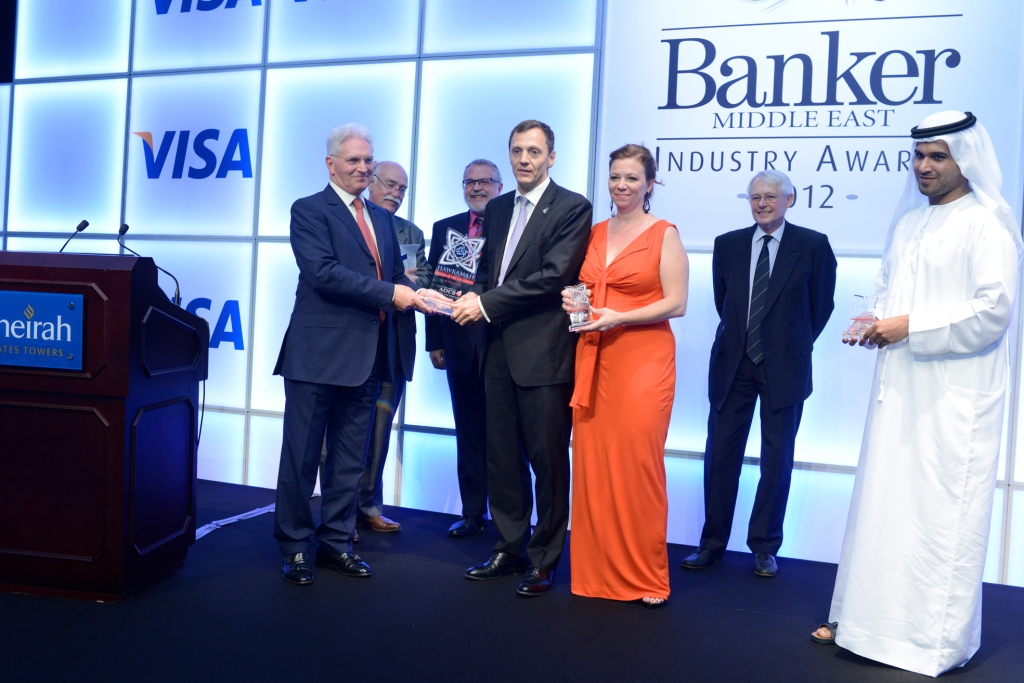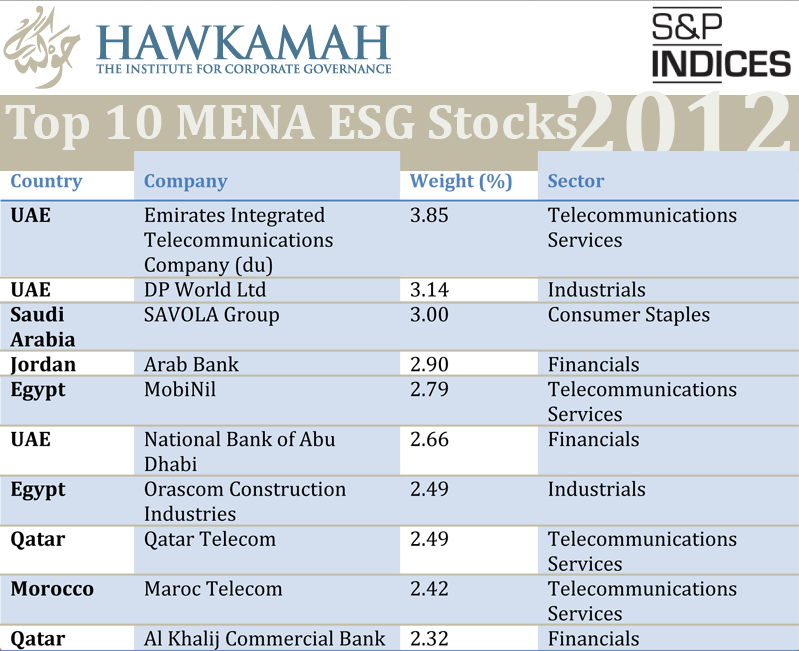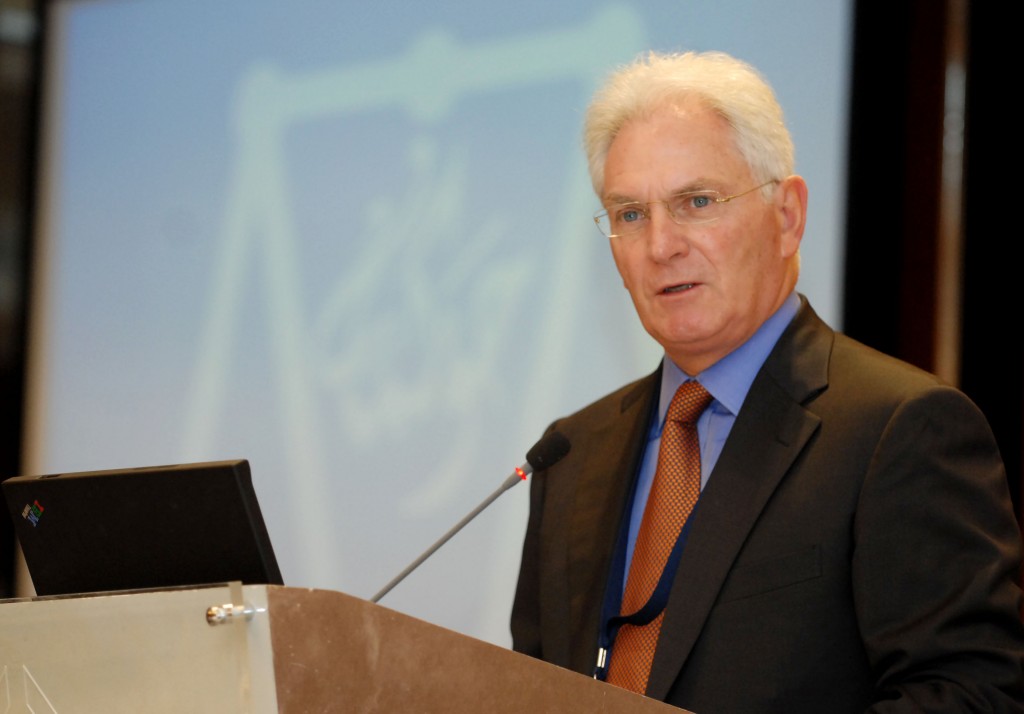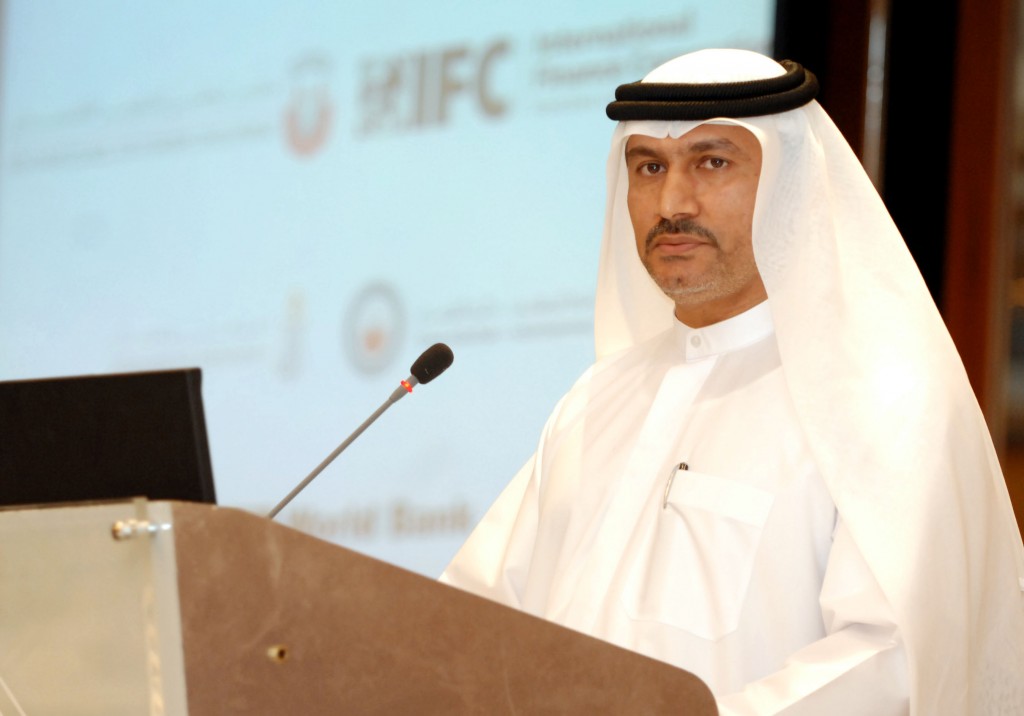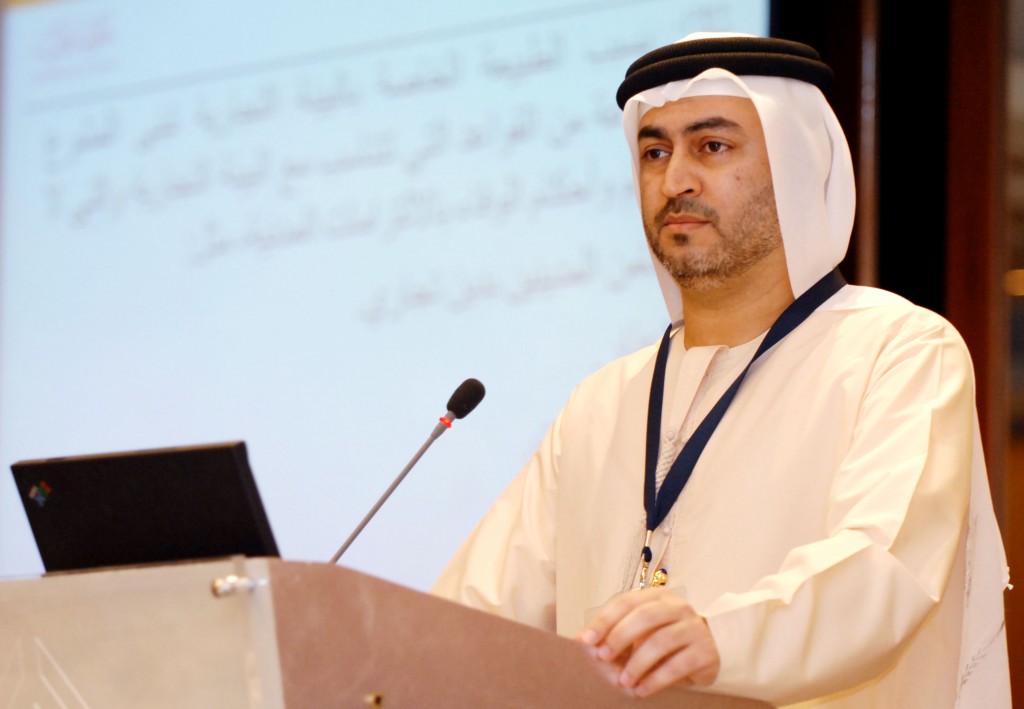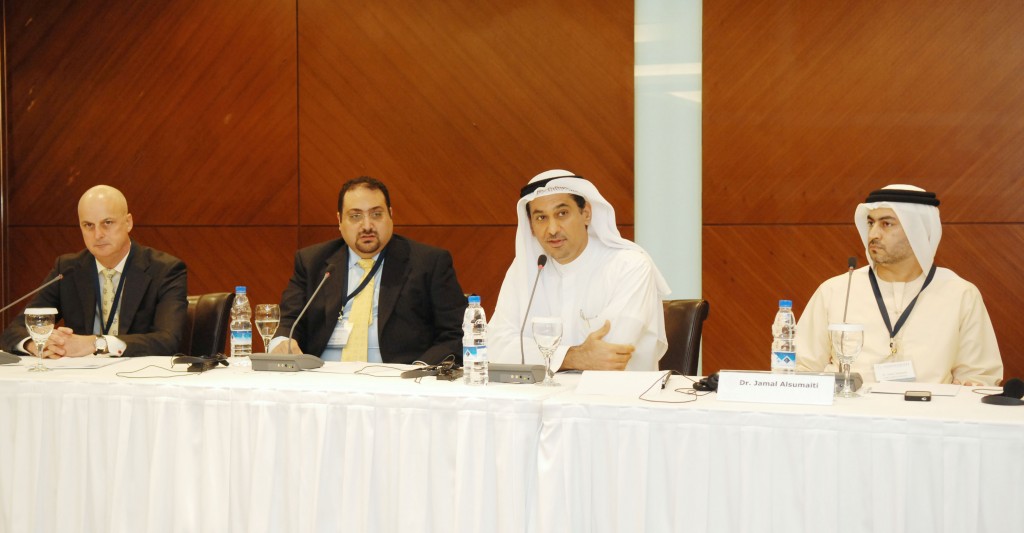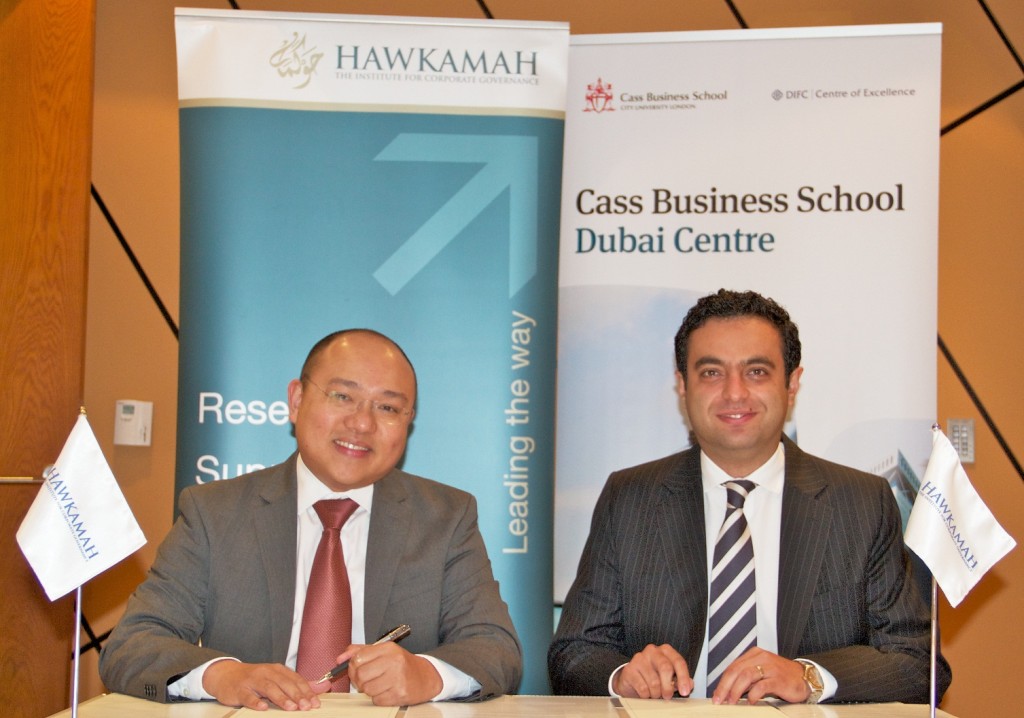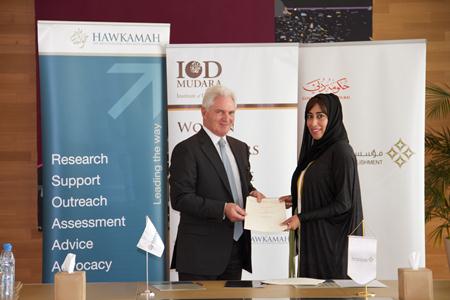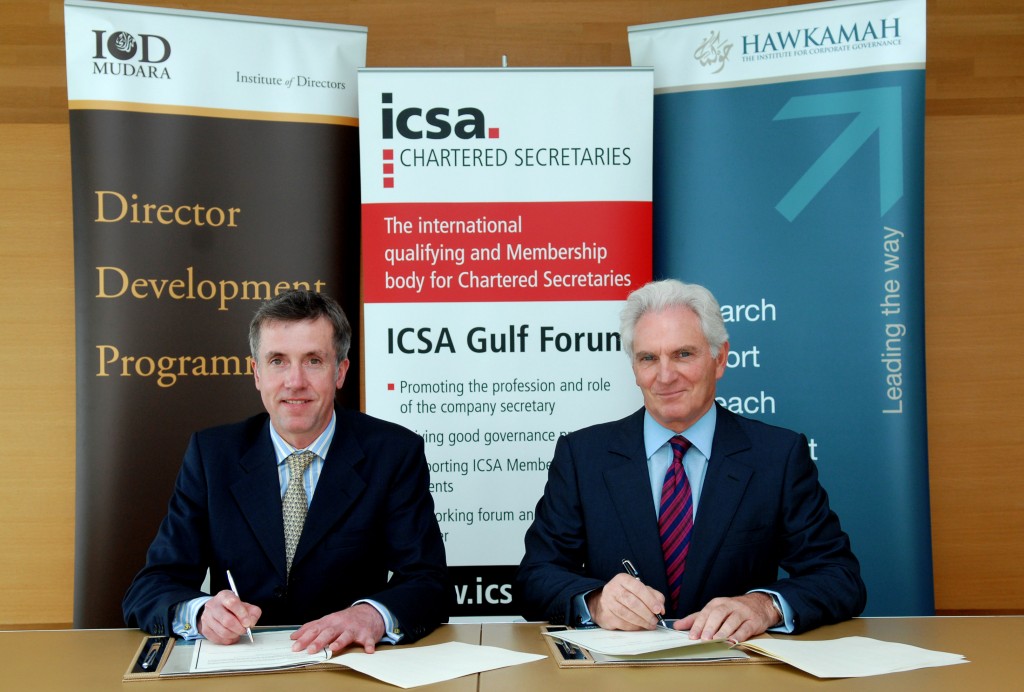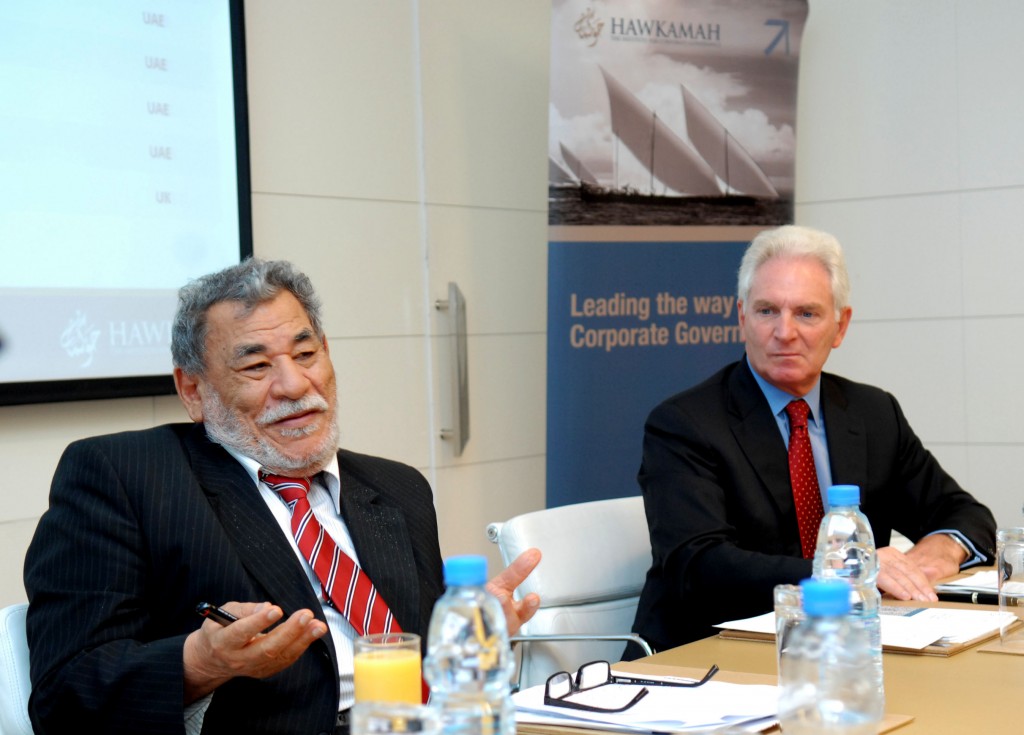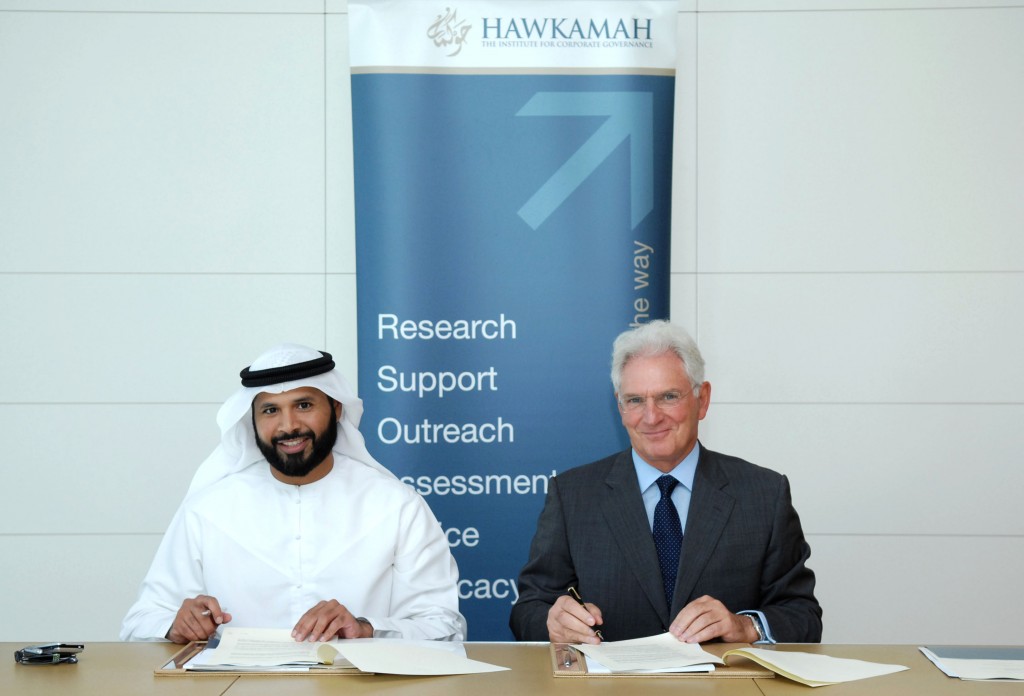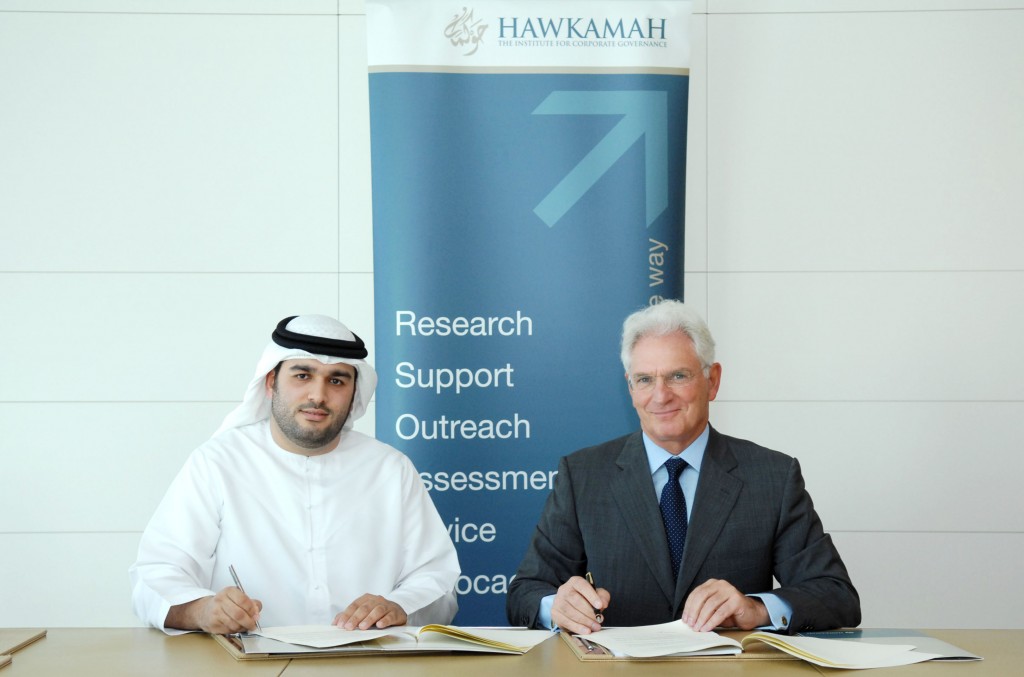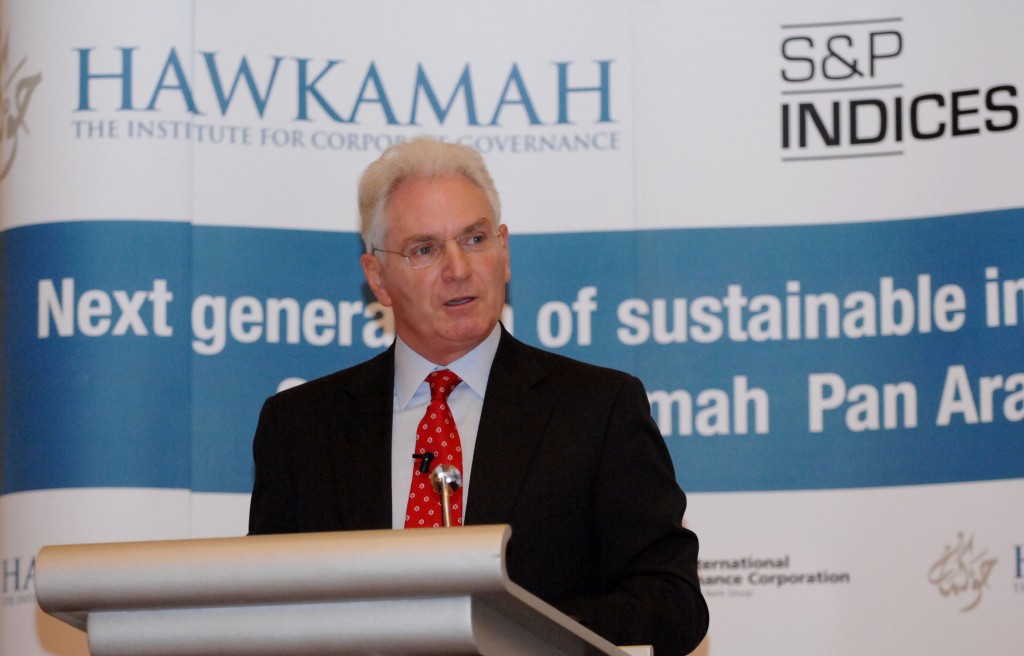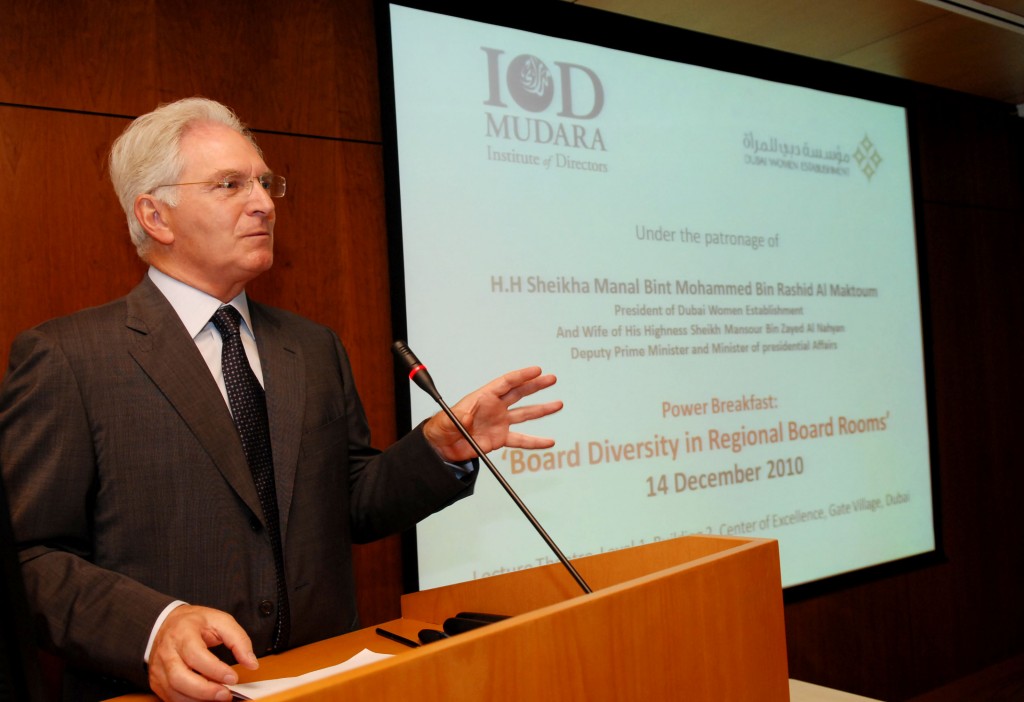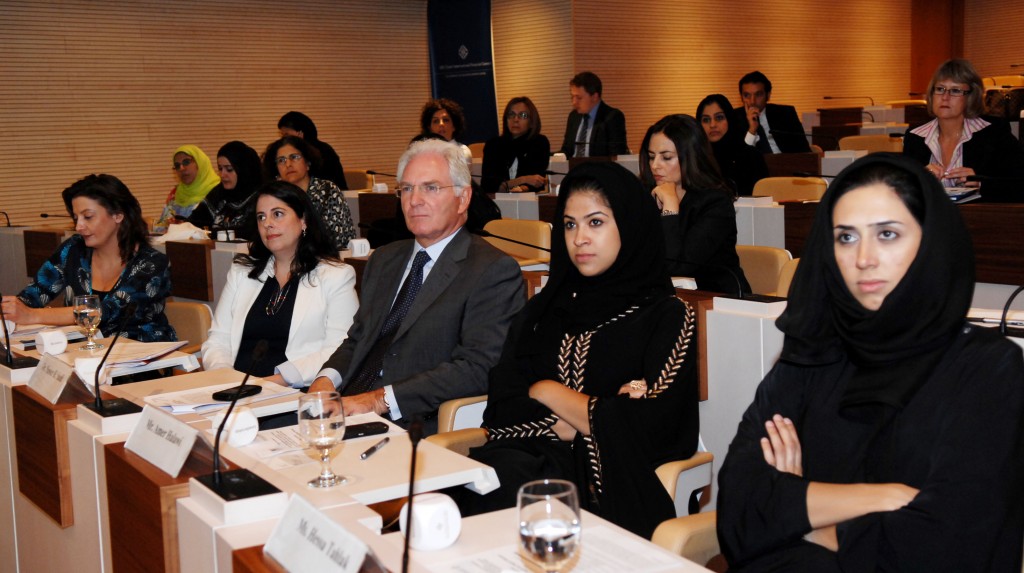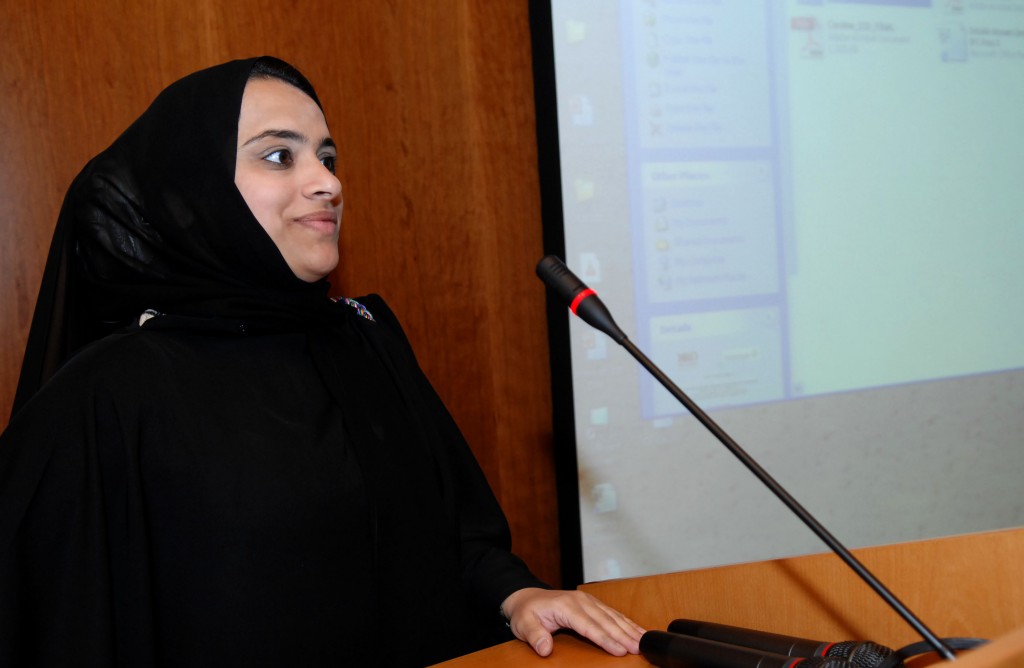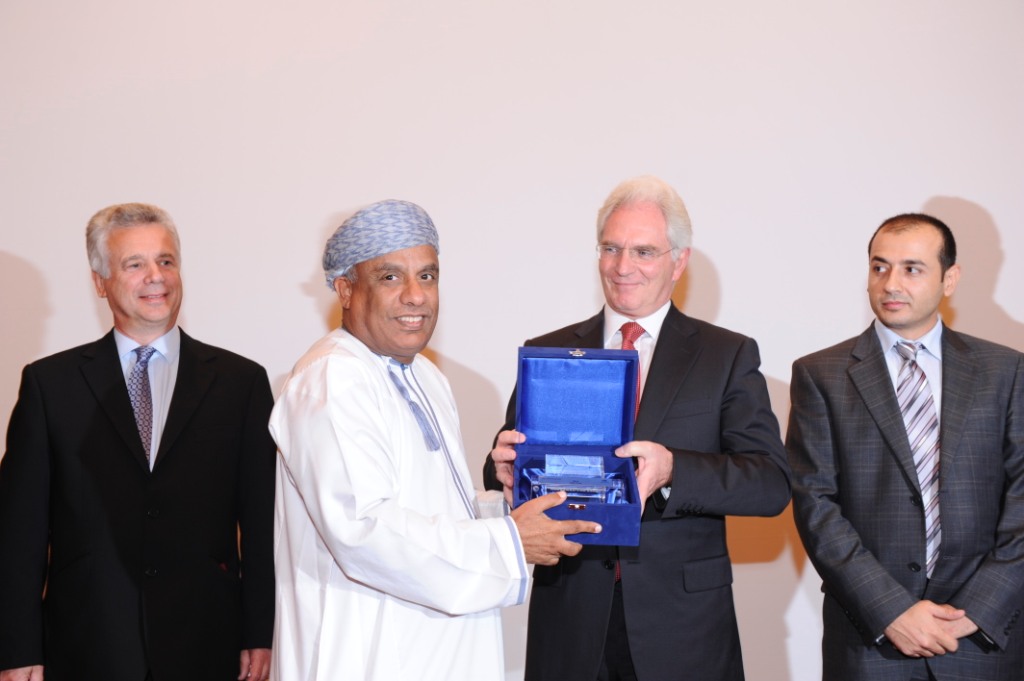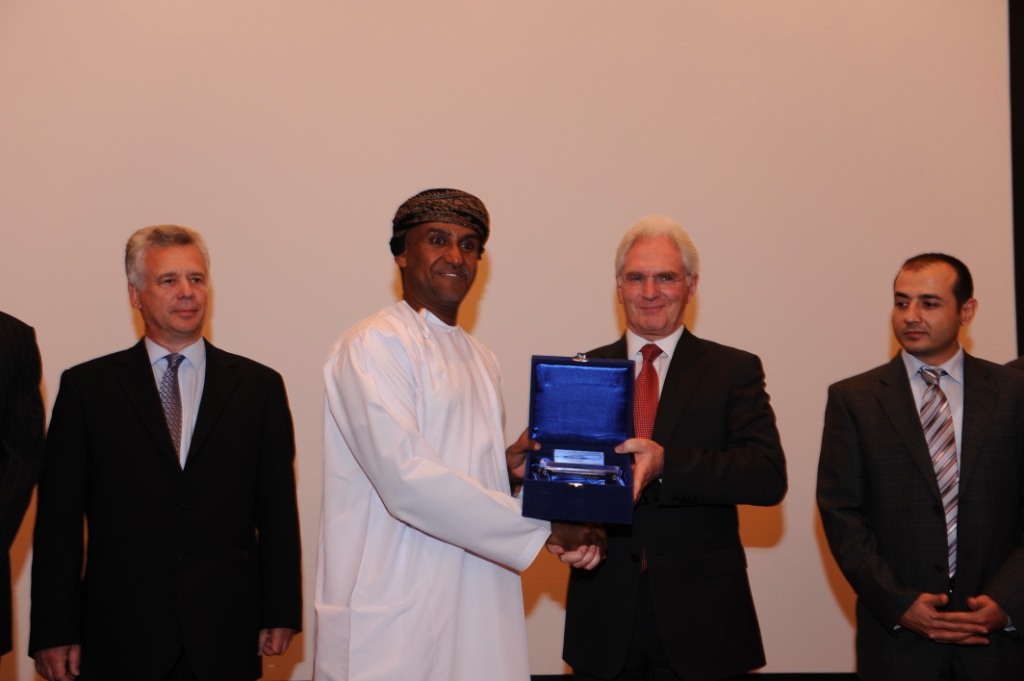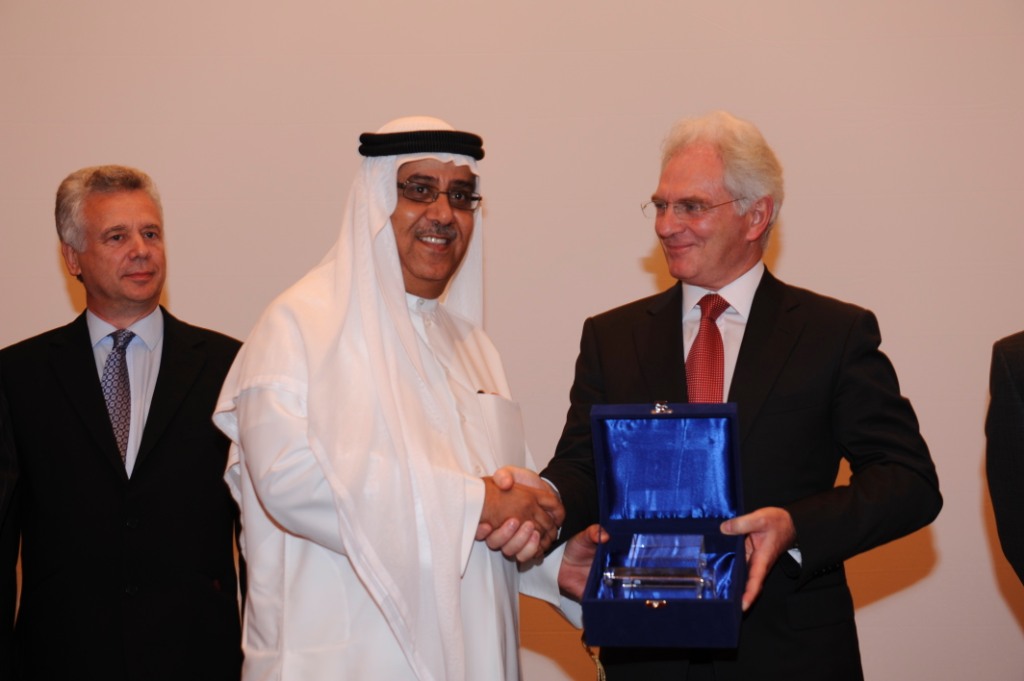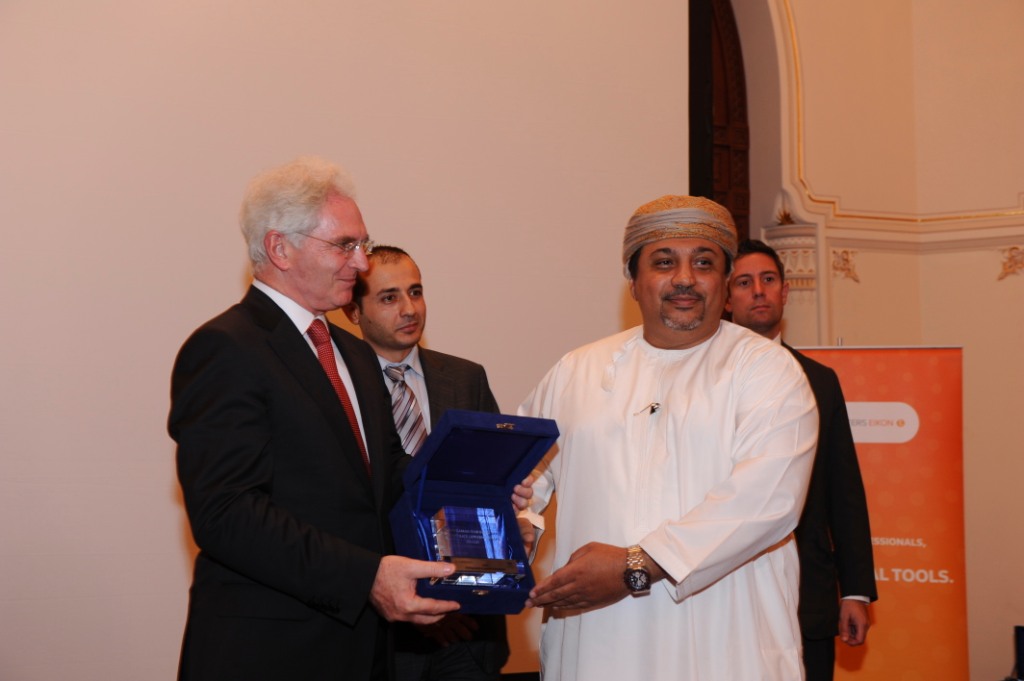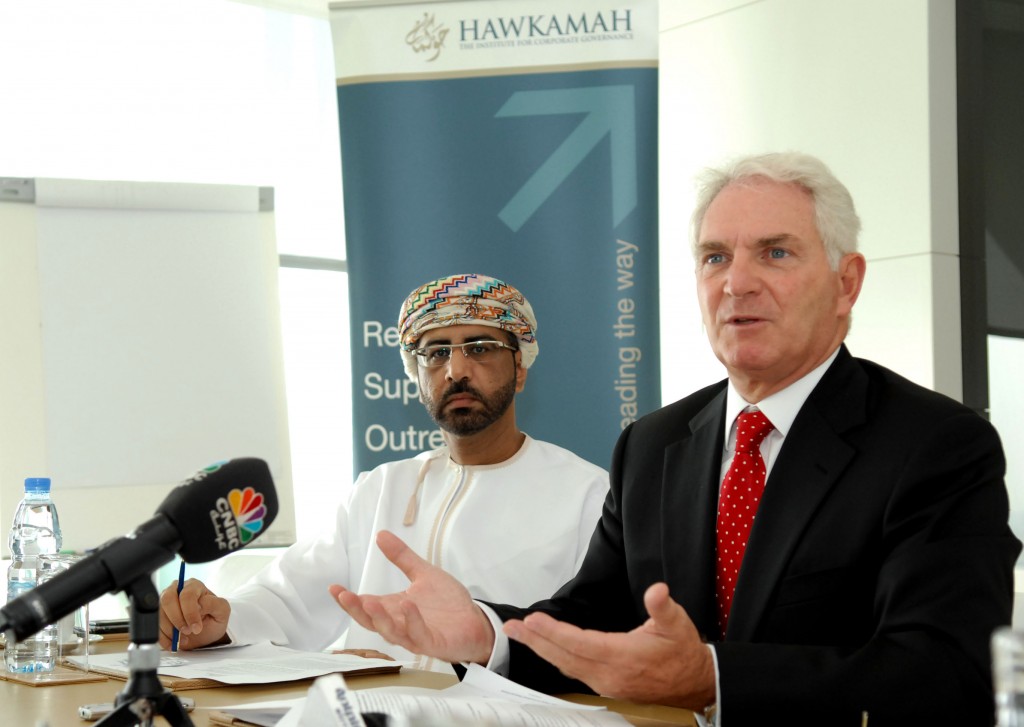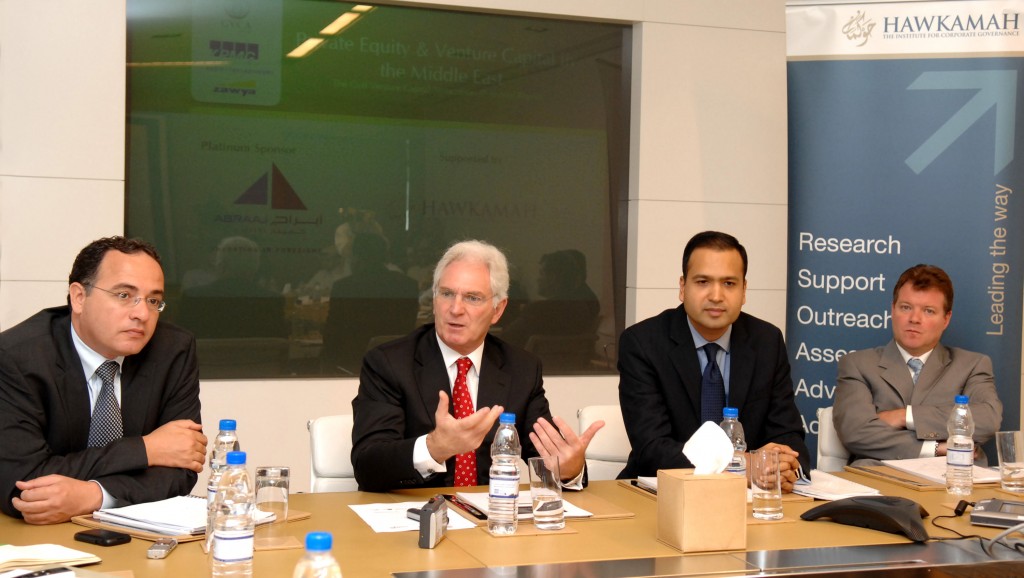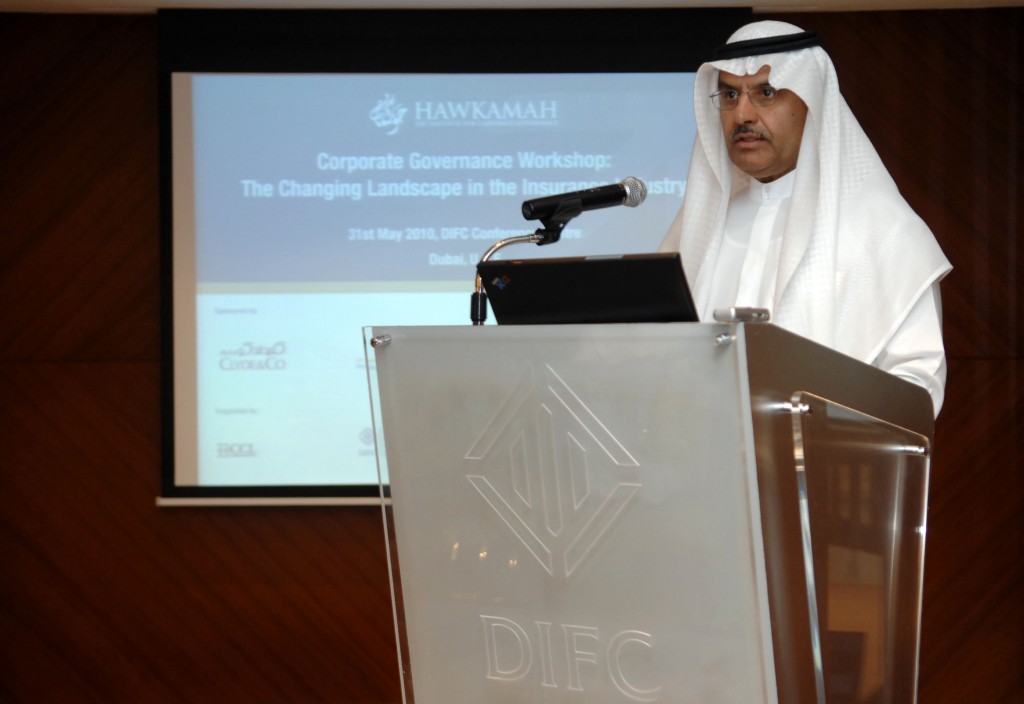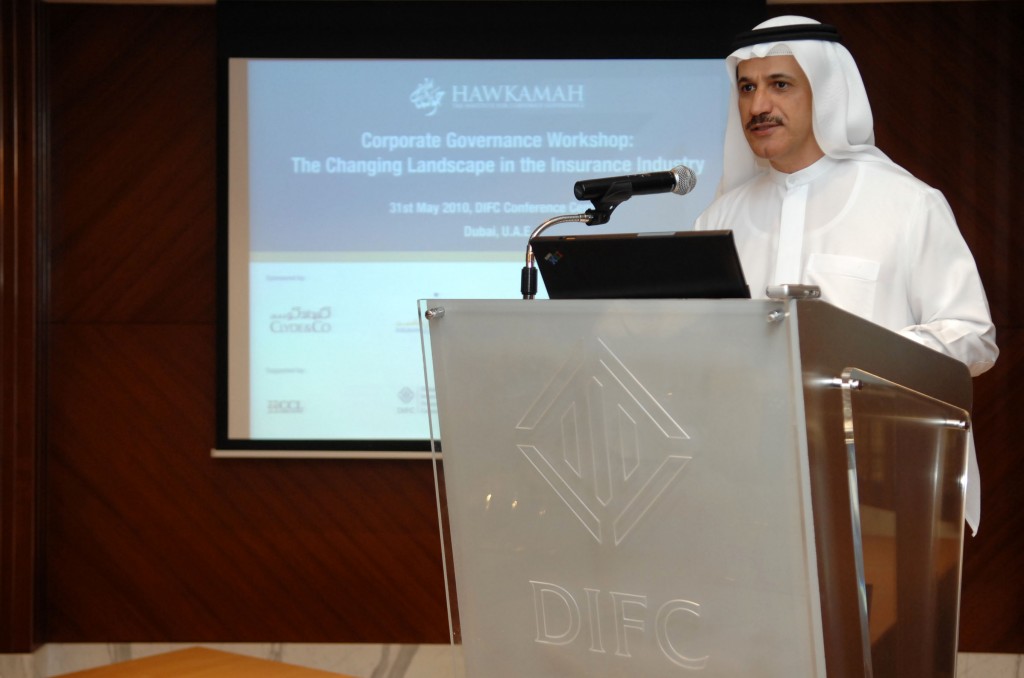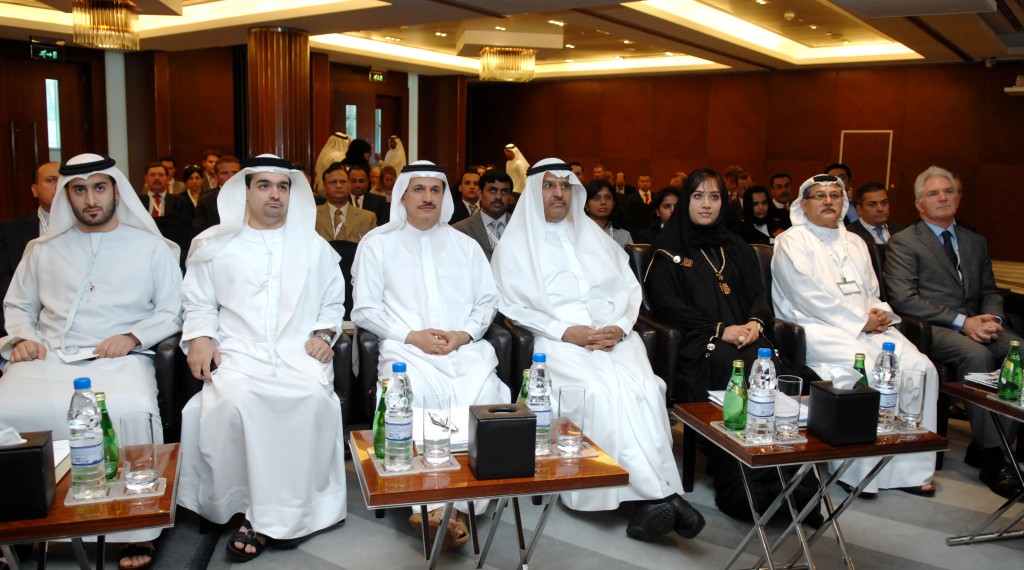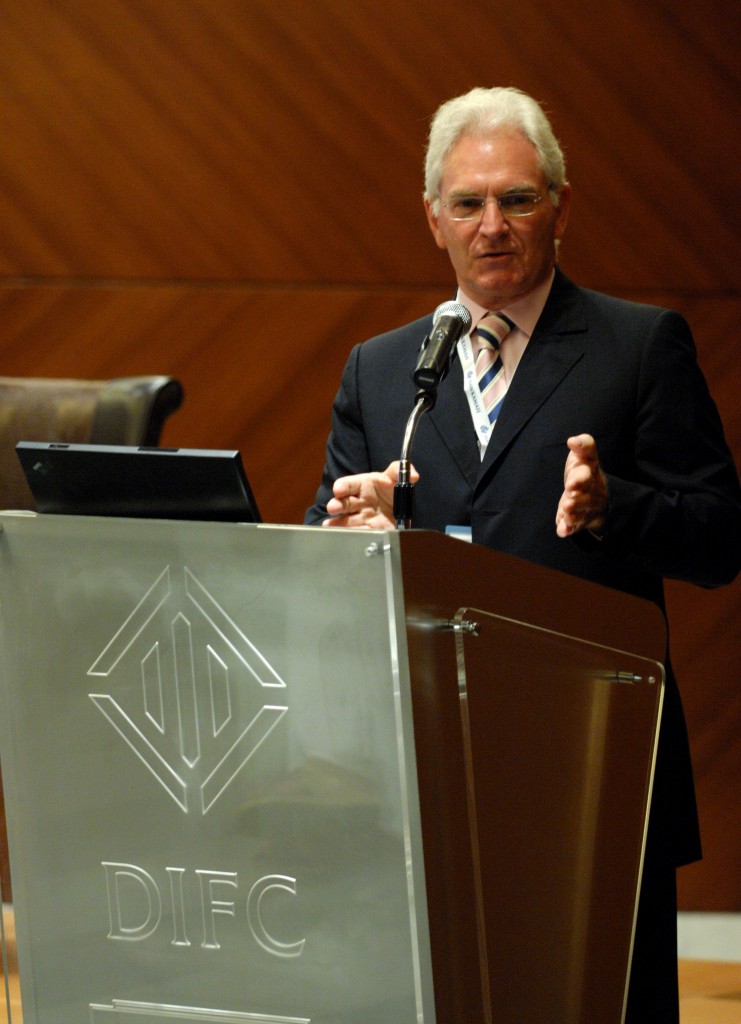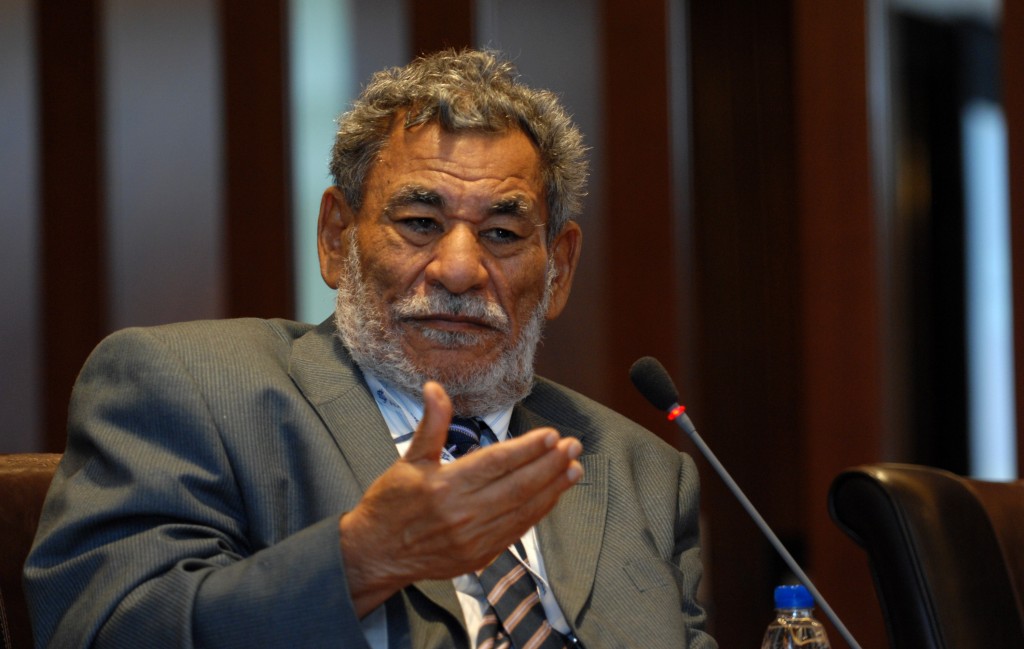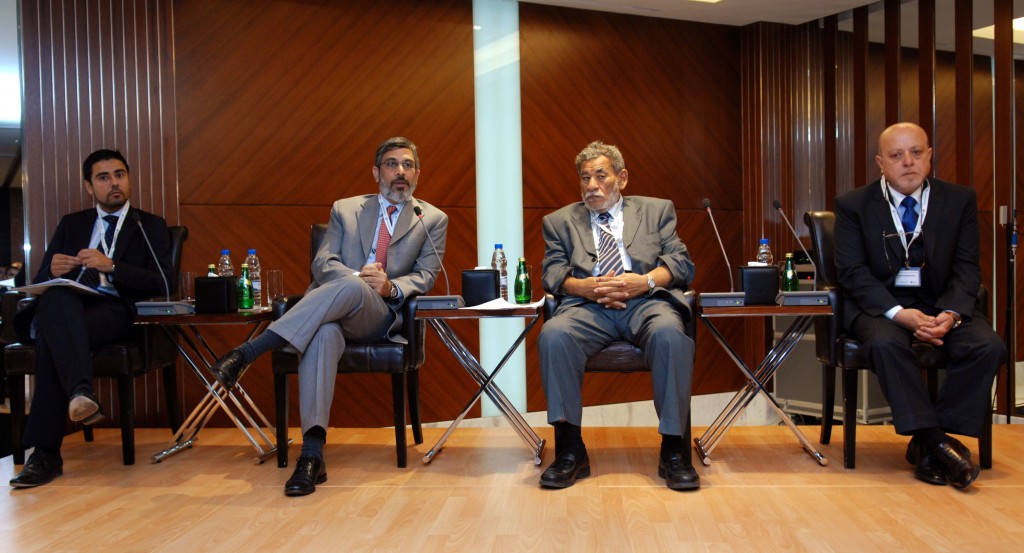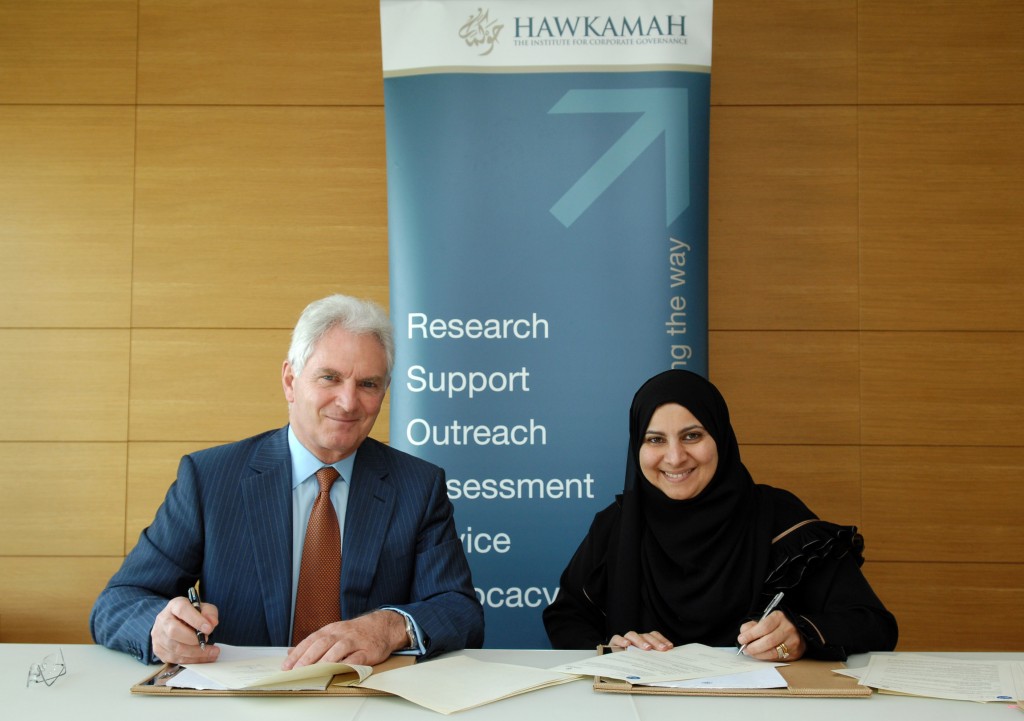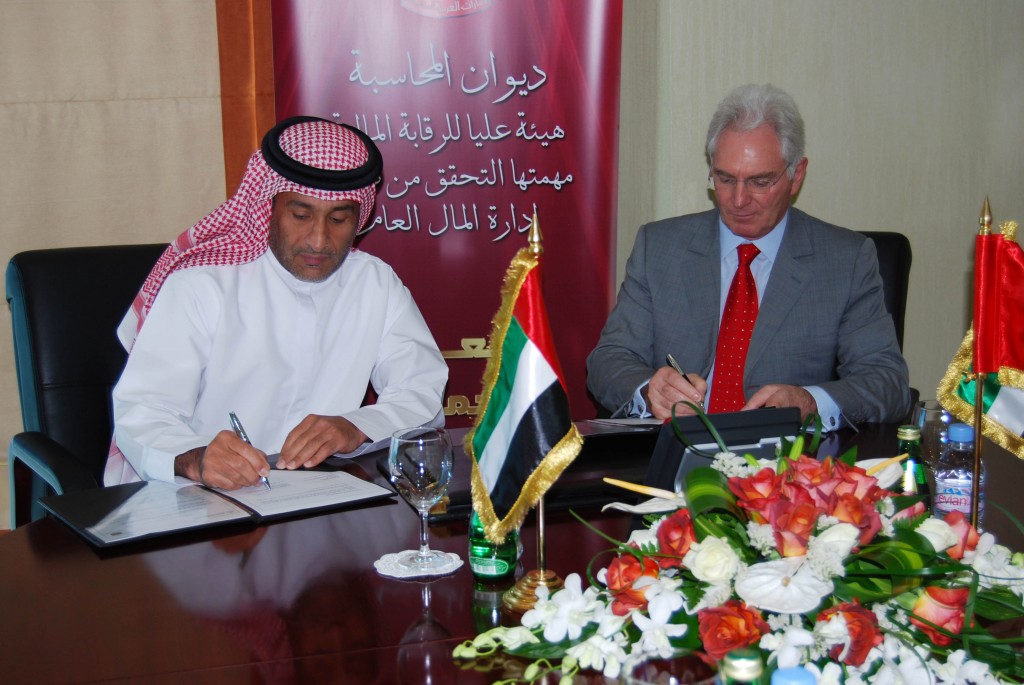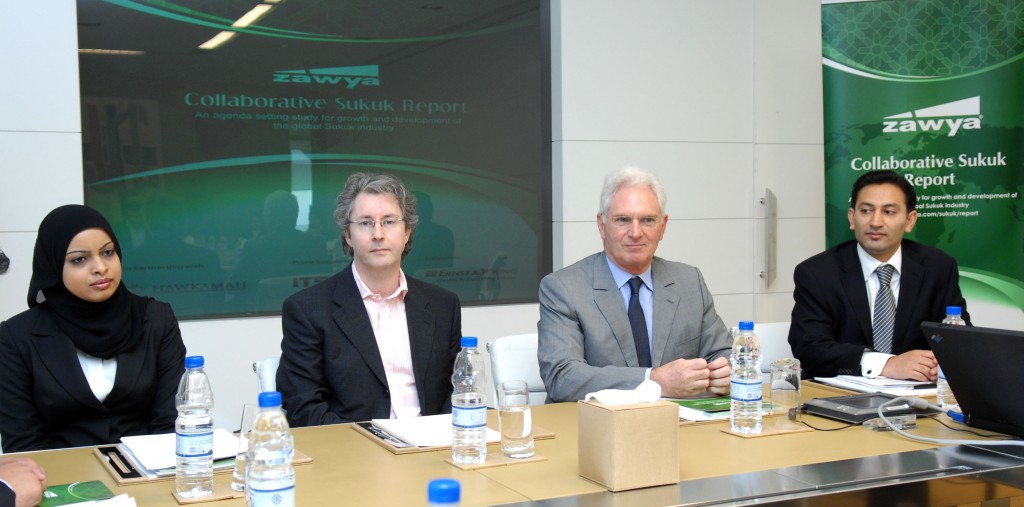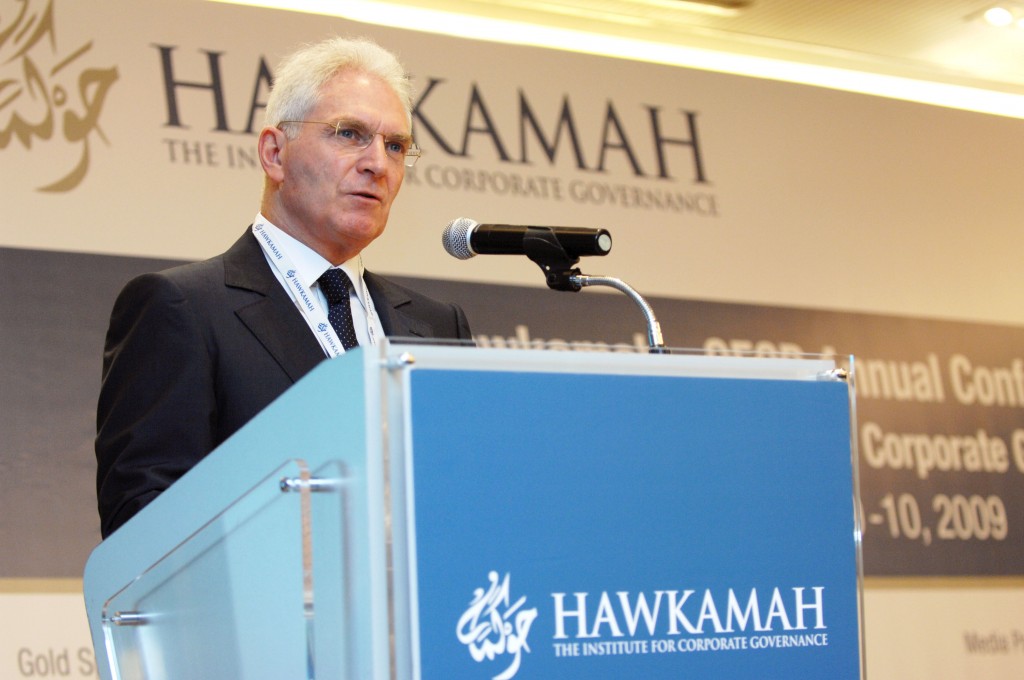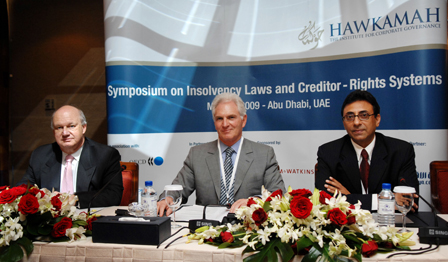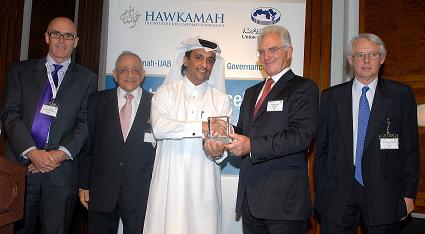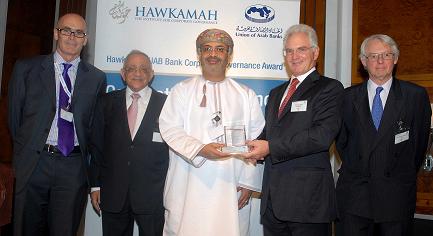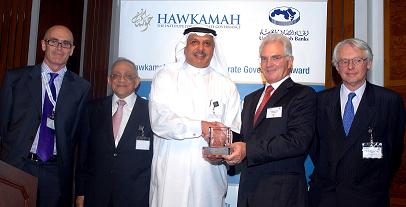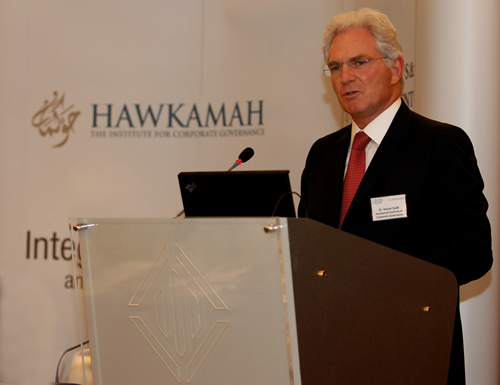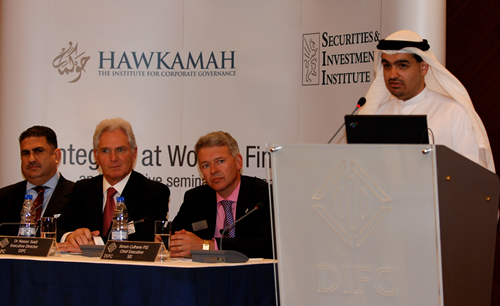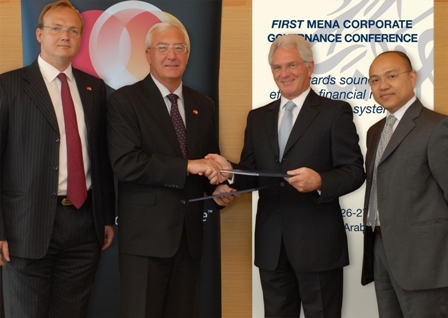This keynote address was given at Ethical Finance Innovation Challenges & Awards (EFICA) 2014, organised by ADIB and Thomson Reuters, held on 29 Oct 2014 in Dubai.
Ethics, Rebuilding Trust in Finance & Some Lessons from Islamic Finance
Good evening, As-salamu alaykum, as we say in this part of the world.
I am honoured to speak at this Ethical Finance Innovation Challenge and Awards event. Ethics and Finance is currently a “trending” topic and highlighted as an integral part of the future of finance by the IMF which invited the Archbishop of Canterbury to speak on a panel on the subject at the recently concluded meetings in Washington. For all we know the next time, an invitation will be sent out to the Imam Al Akbar of the Azhar as well!
The Great Financial Crisis (GFC) and its sister, the Great Contraction, highlighted the destructive consequences of financial crises for economies and societies: deep and prolonged recession, high unemployment rates, widespread bankruptcy, greater poverty along with increasing inequality of incomes and outcomes both within and across generations. In many countries the crisis has undermined the existing social contract and social welfare systems.
The ongoing economic crisis is also a crisis of ethics and values. At a deeper level the GFC has undermined social capital, the links, networks, shared norms & values and understandings in society that enable individuals and groups to trust each other and so work together. Social capital is the fabric of economies and societies, providing the framework for the operation of free markets, enabling co-operation within or among groups. When social capital is impaired so is the soundness and effectiveness of markets. The GFC has fundamentally changed views of the role of finance, the benefits of policies of financial deregulation and financial liberalisation.
The GFC did not result from macroeconomic imbalances, commodity price shocks, wars, external shocks or natural catastrophes. It was fundamentally a failure of governance. The crisis stemmed from excessive risk taking for short-term profit by senior managements in highly leveraged banking & financial institutions. Boards were not fulfilling their obligations in overseeing risk and ensuring the sustainability of their operations. Regulators failed to provide satisfactory oversight of a system that generated incentives to leverage and sent the wrong prudential signals through the pro-cyclicality of capital adequacy and value-at-risk measures. To compound the crisis, the governance failure occurred in the hubs of the international financial system in New York and London and reverberated to the spokes. Many people only remember the focal moment when Lehman Brothers collapsed, but that was only one example of a widespread failure of banking business models across the advanced economies, where major banks either failed or were rescued by the state.
The hub-spoke model also failed, begetting international financial centres that were ‘too big to fail’ and ‘too interconnected to fail’, with financial institutions that were inefficiently regulated and supervised and themselves TBTF and TITF. The hub-spoke model created systemic financial market risk. The fear of failure in the hubs provoked global risk aversion and led to contagion effects affecting the emerging markets and their economies.
We must not allow this to happen again. We need deep financial reforms and we need to design and move to a new international financial architecture of networked financial markets, to a more stable and sustainable “spider web” model based on the new economic geography, developing sound local currency markets in emerging economies.
The reaction of politicians and policy makers in advanced economies has been to introduce more extensive regulation and tighter supervision. Basel III capital rules are being implemented, market infrastructure is improving, there is less reliance on rating agencies and there is improved appreciation and management of risk. But we have yet to address the TBTF/TITF and market rigging scandals.
The starting point for effective reform is the recognition that finance is special. Finance lies at the core of modern economies, it is the fuel of all activities. We are in the age of financial capitalism not industrial capitalism. Financial capitalism is only sustainable if there is trust in the system, which is based on minimal standards of ethics and integrity.
The Financial Stability Board Chairman and Governor of the Bank of England Mark Carney has highlighted four financial reforms that need to be instituted:
First, ending Too-Big-To-Fail & Too Inter-Connected-To-Fail and putting in place effective resolution regimes for banks and non-bank financial institutions. We must end a system of ‘heads I win, tails you lose’ and you bail me out at tax payer expense. Fundamentally, this means more capital, simpler banks, simple regulation and strong supervision.
Second, creating fair and effective markets by instituting ‘principles for fair markets’ and codes of conduct for specific markets to restore confidence in the integrity of those markets. A case in point is benchmark rigging as happened with the LIBOR scandals.
Third, reforming compensation. Incentives are core. Misaligned incentives lead to wrong business models. The FSB has developed principles for sound compensation practices to align incentives with long-term risks not short-term profits.
Fourth, building a sense of vocation and responsibility that should be infused in the culture of financial institutions. Financial leaders are stewards of national and international wealth: they are responsible and should be accountable. They are the custodians of a public good, money, and must act in consequence and be held accountable accordingly. This means that we need to engage the personal responsibility of board members, management and staff.
Rebuilding Trust in Finance
The GFC has caused a loss of trust by the general public in the financial system. Reduced trust in the financial system has increased the cost and lowered the availability of capital for non-financial firms. Surveys show that the public now has the least trust in bankers, regulators and politicians. The 2014 Edelman Trust Barometer, shows that banks and financial services continue to be the least trusted industry globally, more deeply mistrusted than the media.
Financial reforms and stricter supervision are political reactions meant to alleviate public and tax payer anger post-GFC and its aftermath. Trust & confidence are critical for the banking sector: institutions, rule of law, rules and regulations, supervision are there to help instill trust & confidence and rebuild social capital. However, it is the banking sector itself that should take the initiative to rebuild confidence. There is a need to have a culture of values not a culture of compliance. This has yet to happen.
According to an EIU-CFA survey undertaken in 2013, most firms have attempted to improve adherence to ethical standards. However, though industry executives champion the importance of ethical conduct, they struggle to see the benefits of greater adherence to ethical standards. Some of the survey results are eye-openers: 53% of the survey respondents thought that career progression at their firm would be difficult without being flexible on ethical standards. The same proportion considered that strict codes of conduct would harm their firm’s competitiveness. Only 37% thought that their firm’s financials would improve as a result of an improvement in the ethical conduct of employees at their firm, while 43% have had to introduce incentives to encourage ethical conduct. Nonetheless 96% nonetheless prefer to work for a firm with a good reputation on ethical conduct!
Finance plays a pivotal role in financial capitalism. Through its intermediation role between savers and investors, borrowers and lenders, it fuels the economy. Critically it is not just the capital ratio, liquidity and leverage ratios, there is, more fundamentally, the ‘confidence ratio’. The failure of trust and confidence results in a lack of investment which results in lower growth and lack of job creation. The detachment of finance from the real economy has undermined trust in the market system and financial capitalism.
Lessons from Islamic Finance
Islamic Finance stands out, given its strong ethical foundations in Shari’a. IF is based on four building blocks: (a) Risk sharing; (b) Social Justice; (c) Ethical principles; (d) Poverty alleviation. Islamic finance is based on Shari’a principles, which express an intent to meet the financial needs of participants with integrity and in a manner that is just, fair, trustworthy and honest, while ensuring a more equitable wealth distribution. These Islamic principles uphold the principles of integrity, transparency, fairness and good corporate governance, helping curtail excessive risk taking.
Importantly, while observing haram prohibitions, IF ties financial transactions to activities in the real economy. IF implies a risk-sharing relationship with entrepreneurs and with investment account holders, not ‘depositors’.
Proponents of Islamic banking claim that it is therefore superior to conventional finance regarding efficiency, justice and stability. Indeed, Islamic banking offers a different paradigm from the detached, transactional, conventional banking. Similarly, Takaful, is based on the principle of collective, cooperative sharing of risk.
Shari’a Governance: From the viewpoint of corporate governance, IFIs embody a number of interesting features since equity participation, risk and profit‐and‐loss sharing arrangements form the basis of Islamic financing. An IFI is subject to an additional layer of governance that of ensuring Shari’a compliance, since the suitability of its investments and financing, both assets and liabilities, must be in strict conformity with Shari’a and the expectations of the Muslim community.
The core of the UN’s Principles of Responsible Investing are strongly related to Shari’a principles, there is large potential for expansion of IF and convergence with responsible investment, acting as a bridge between conventional and Islamic finance. According to the UN Principles of Responsible Investing, companies accounting for about 20% of the world’s capital (over USD 30 trillion of assets) have signed up to the Principles. However, participation from the Middle East region is dismal: only one investment manager is signed on (and no asset owners are yet signatories!).
Inequality, Ethics and Finance
In an age of increasing inequality within countries and between countries, of growing uncertainty as to the future, where greed & cupidity and accumulation of personal wealth are promoted to our young people as being the major motivation of their lives, the strength of IF is that it re-introduces moral values and ethics as an integral part of finance.
The bottom line is that IF embodies many of the answers to the lack of trust resulting from the GFC. However, accepting Sharia principles does not mean that they are being practiced. We must beware of an IF landscape that is accepting of “form over substance”. Sharia compliance has become a juristic category with different legal underpinnings and another compliance category.
Moving forward
The future of finance will be about technology, about access to and inclusiveness of finance in a changing economic landscape and geography. It will be about the role of non-bank financial intermediation. But at the core it will be about changing culture and embedding good governance, ethics, integrity, transparency & disclosure and accountability. What would be the components? A “Programme for Positive Action” would include:
First, adopting of Codes of Conduct and Ethics that are imbued with a sense of vocation and the core values of Sharia.
Second, confirming corporate responsibility by adopting the UN Global Compact principles and the regional Pearl Initiative and the UN Principles for Responsible Investment.
Third, implement the revised BIS corporate governance principles alongside IFSB CG standards and King Code III, The latter focuses on ethics, sustainability, corporate culture and responsibility and an overall risk-centric approach to governance. King III requires organisations produce an integrated report instead of an annual financial report and a separate sustainability report. Sustainability reports should be prepared in accord with the Global Reporting Initiative’s ‘Sustainability Reporting Guidelines’. It carries the message of Sharia principles and values.
These are all tools that impose discipline and an organized framework for action. However, ethics and integrity is a message that must be clear from the top, from the board, share-owners and top management.
Needless to say, the focus of implementation of ethical and CG standards should not be solely on enforcement, but also facilitation of better corporate governance practices by capacity building initiatives. One of the barriers to better governance, often cited by companies, is the lack of know-how and experts.
It is in this regard that events like EFICA are central to enabling and rewarding best practices. I would like to commend ADIB and Thomson Reuters for initiating and supporting such an initiative that rewards ethical and innovative practices in finance.
The GFC year 2008 will be a ‘defining moment’ in post WW II history, marking a watershed for finance and financial markets. The crisis requires a paradigm shift, a new Weltanschauung. We are challenged to re-design the existing financial architecture which has been in place for nearly a century and the Bretton Woods system. This is a time for bold vision and action. A new economic geography with a renewed dominance of emerging markets requires a new global financial geography. Political, social and ethical values, economic and financial orthodoxy, policy recipes, and as a consequence, the moral high ground, will have to be redefined in a new reality. The question to all of us is: what will be our legacy?
References
Carney, Mark (2014): “Inclusive Capitalism – Creating a Sense of the Systemic.” Speech at the Conference on Inclusive Capitalism, London, May 27.
Carney, Mark (2013): “Rebuilding Trust in Global Banking.” Remarks at the 7th Annual Thomas d’Aquino Lecture on Leadership, Lawrence National Centre for Policy and Management, London, Ontario, February 25.
EIU (2013): A Crisis of Culture: Valuing Ethics and Knowledge in Financial Services.
Erhard, W. and Jensen,M.(2014): “Putting Integrity into Finance: A Purely Positive Approach.” Finance Working Paper 417/2014, European Corporate Governance Institute, Brussels.
Lagarde, Christine (2014): “Economic Inclusion and Financial Integrity.” Address prepared for the Conference on Inclusive Capitalism, London, May 27.
Nienhaus, Volker (2011): “Islamic Finance Ethics and Shari’ah Law in the Aftermath of the Crisis: Concept and Practice of Shari’ah Compliant Finance”, Ethical Perspectives Vol 18 no. 4, pp 591-623.
Saidi, Nasser (2011): “Islamic Finance: its Ethical Inspiration and its Economic Dimensions”. Speech available at: http://nassersaidi.com/2011/10/06/islamic-finance-its-ethical-inspiration-and-its-economic-dimensions-6th-october-2011/
